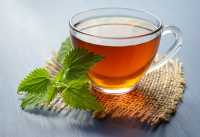
01 Sep Tea Drinkers May Live Longer
MedicalResearch.com Interview with:

Dr. Maki Inoue-Choi,
Maki Inoue-Choi, Ph.D., M.S., R.D.
Staff Scientist
Metabolic Epidemiology Branch
National Institutes of Health
MedicalResearch.com: What is the background for this study?
Response: Tea is rich in bioactive compounds that can possibly protect against health conditions such as cancer and heart disease. A lower risk of death was seen among tea drinkers than non-drinkers in previous studies, but these were largely in populations where green tea drinking is common. In contrast, the studies in populations where black tea drinking is more common have been limited and the findings from these studies have been inconsistent.
MedicalResearch.com: What are the main findings? Any particular type of tea?
Response: We found that people who drank 2 or more cups of tea every day had a lower risk of death than people who didn’t drink tea during 14-years of follow up in a very large study of nearly half a million people in the United Kingdom, where more than 4 out of 5 people reported drinking tea every day. Similar findings were seen among people who added milk or sugar to their tea. These findings were also seen regardless of tea temperature or whether people had genetic variants that affect caffeine metabolism. While we did not analyze by tea type, almost 90% of tea drinkers in this study drank black tea.
MedicalResearch.com: What should readers take away from your report?
Response: Our findings indicate that black tea can be part of a healthy diet and may offer reassurance to tea drinkers. Nevertheless, people should not make decisions about whether or not to start drinking tea or how much tea they drink based on findings from a single study. These findings need to be replicated and extended to other populations with different lifestyles.
MedicalResearch.com: What recommendations do you have for future research as a results of this study?
Response: Although we carefully assessed the associations of tea drinking and a risk of death, this study is observational in nature, and we cannot be certain that other poorly measured or unmeasured factors may have impacted our results. Also, this study was performed in a predominantly White population with a relatively high socioeconomic status. Future studies are needed to extend these findings to other populations with different lifestyles and more diverse populations.
MedicalResearch.com: Is there anything else you would like to add? Any disclosures?
Response: We saw a similarly lower risk of death among people who added milk or sugar to their tea, but the added amount of sugar and milk was relatively small. We caution that dietary guidelines recommend avoiding large amounts of sugar and saturated fat, like fat in milk.
None of the authors of this study have anything to disclose.
Citation: Maki Inoue-Choi, Yesenia Ramirez, Marilyn C. Cornelis, et al; Tea Consumption and All-Cause and Cause-Specific Mortality in the UK Biobank: A Prospective Cohort Study. Ann Intern Med. [Epub 30 August 2022]. doi:10.7326/M22-0041
The information on MedicalResearch.com is provided for educational purposes only, and is in no way intended to diagnose, cure, or treat any medical or other condition. Always seek the advice of your physician or other qualified health and ask your doctor any questions you may have regarding a medical condition. In addition to all other limitations and disclaimers in this agreement, service provider and its third party providers disclaim any liability or loss in connection with the content provided on this website.
Last Updated on September 1, 2022 by Marie Benz MD FAAD
